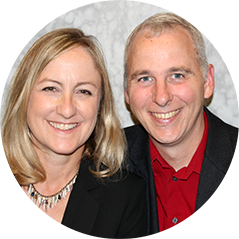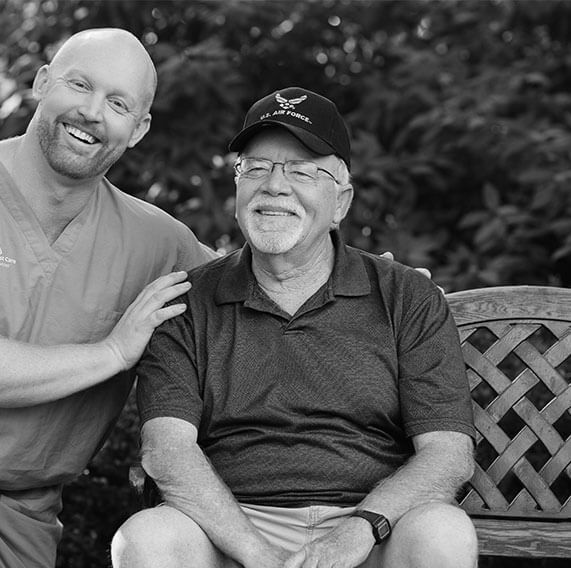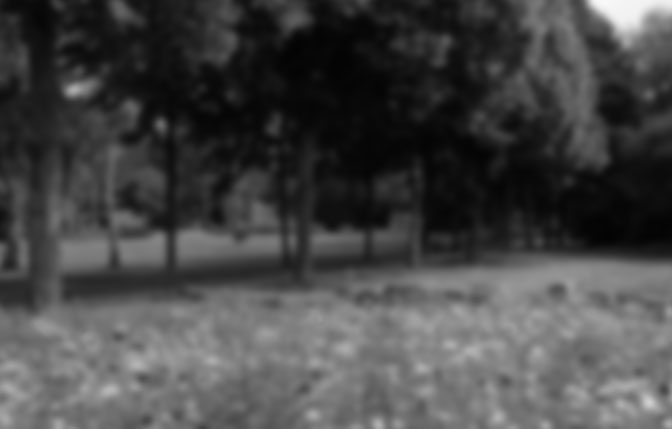Team of Caring Professionals
We are a team of caring and compassionate professionals working together to provide the best possible care for you and your loved ones
The Most Reliable Senior Care
Please submit this form below and we will chat shortly!

Always Best Care of Greater Lexington combines national strength and standards with local accessibility and personal service to provide peace of mind to families in Lexington and surrounding counties. President, Phillip Morgan and Chief Operating Officer, Sarah Diener, are co owners. Both are long time Lexington residents with years of experience in multiple industries, including healthcare and senior care.
“Because we have a passion for helping families to regain their lives while ensuring their loved ones are safe, comfortable, and nurtured, we have focused on maintaining high standards for reliability with our care team screening and training,” says Sarah Diener.


We match our clients with the most appropriate living options

We are a team of caring and compassionate professionals working together to provide the best possible care for you and your loved ones
We have worked with many seniors and their families across Central Kentucky, providing the best service each step of the way
Our team of professional caregivers has a proven track record of providing expert care to seniors and people with special needs
We help people with specific needs maintain a safe, independent, and dignified lifestyle with in-home care, senior community referral services and special care services
Discover our services to find the right care solution for you and your loved ones
Expert care services, delivered in the comfort of your home
Referral services designed to help you find the right senior living community
Specialized health monitoring services, powered by advanced healthcare technology
Helping veterans navigate the financing options available from the VA to receive the best care possible
Your local Always Best Care team helps families throughout Lexington and the surrounding areas


ALWAYS THERE FOR YOU ALWAYS BEST CARE
“Always Best Care is truly a wonderful agency. My brother and I did research”
“I am a current client of this provider Always Best Care has been wonderful to work”
“Always Best Care has been wonderful to work with during my parents’ health issues. ”
“Thank you so much for sending sweet Asani to help my aunt and uncle! ”
“Always Best Care provides excellent home health care services, offering compassionate and reliable support for”
“The best in the business! I had a great experience”
“From our first interaction, everyone has been very professional and caring. They have given”
“Compassionate, caring, patient and professional. Look no further than Always Best Care for the care”
“We have been THRILLED with the care we have received through Always Best Care! ”
“I am a current client of this provider Our caregiver has been a perfect match and”
“I cannot say enough good things about Always Best Care and the service they provide”
“They have a great team and really seem like they care!!”
“Always Best Care Of Lexington is a wonderful place of employment. Within my time along”
“Our family can’t say enough about Always Best Care and taking care of our Dad”
“Always Best Care has been a God-send for us. The staff is so kind and”
“ABC has provided in-home care for my mother for the past ten months. We appreciate”
“I was very pleased with the conscientious service provided by Always Best Care and the”
“I am a past client of this provider I was very pleased with the conscientious service”
“We contacted ABC to help my then 94 year-old mother with her activities of daily”
“Thank you for caring for my MIL! She has always been very capable & independent.”
“I am a current client of this provider Always Best Care has done an excellent job”
“Your caregivers were polite, professional and taught us many techniques to keep our father comfortable.”
“When I needed extra support and companionship for my mother, Always Best Care was there.”
“The people at Always Best Care are caring and they are always there for their”
“Bruce was awesome! When I was looking for care he let me know very”
“I have been in the healthcare industry for about 5 years now, working for Always”
“I have been in the healthcare industry for almost 6 years now, and I have”
“Always Best Care goes above and beyond for their clients and families needs to satisfy”
“When you think of the words compassionate and dependable, I think of Sarah and Phil”
“I have been in healthcare for over 15 years. I’ve owned business in Home Care”
“I have been in healthcare for over 15 years. I’ve owned business in Home Care”
“I am a current client of this provider My mother is a client of Always Best”
“I love working here! They work with your schedule and they always give you extra”
“I am a past client of this provider I needed help with everything and they helped”
“I would definitely recommend Always Best Care. They are all about meeting everyone’s need, from”
“I am a current client of this provider They have been able to provide for the”
“Sarah and Phil are amazing people to work for. They care about their clients and”
“I love working here! They work with your schedule and they always give you extra”
“I love working here! They work with your schedule and they always give you extra”
“The owners and employees at best care are very knowledgeable and passionate. They will help”
“I can only say exceptional things about this company. They gave me good means of”
“As an employee in a Lexington senior housing community, I greatly appreciate the work Always”
“We also receive wonderful reviews via cards and emails. Call us if we can”
“I would definitely recommend Always Best Care. They are all about meeting everyone’s need, from”
“Always Best Care of Lexington really cares about their clients and their caregivers. They always”
“Always Best Care has provided me with assistance in achieving my ADls. Thus allowing me”
“Great place to care for your loved ones.”
“I am a past client of this provider ABC is a well managed, very reliable company.”
“I am using Always Best Care of Lexington for my parents. The caregiver has done”
“I can not say enough about you and your staff, they were extremely professional, loving,”
“I have used this service for several weeks and have been very pleased. Sarah and Philip”
“Phil and Sarah are hyper-knowledgeable in their field. They strive to hire and keep the”
“Always Best Care is a very caring, compassionate, exceptional personal care business. Day after day,”
“I come across a lot of home care owners. Working with Phil and his partner”
“I have used this service for several weeks and have been very pleased. Sarah and”
“Always Best Care is the best caregiving company I have ever known or been associated”
“Selecting just the right people to care for those you love when you can’t be”
“I’m so happy to be a part of such an Amazing team!Everyone is too sweet!!Wonderful”
“Great team!I’m so happy to be a part of it!!Everyone is so amazing!”
“Finding the right person to care for your loved one is a big decision. Always”
“I’ve been running a home care agency for 7 years now, so I’ve seen all”
“Amazing place to work and great staff who strive to better the lives of their”
“I am a current client of this provider I am using Always Best Care of Lexington”
“These folks are very professional and as their name says they really do always put”
“Phil and staff are so wonderful at helping to navigate where and how the next”
“I highly recommend Always Best Care for your in-home care for your loved ones. They”
“Phil and Sarah are a professional team, each of whom have outstanding skills to care”
“Absolutely love working for Always Best Care! When I stared with them I had mentioned”
“I am a current client of this provider Very positive experience with ABC. Live out of”
“I love the girls that come out to take of .y husband, they are so”
“Always Best Care has continually provided exemplary services to our residents and given much peace”
“Amazing place to work and great staff who strive to better the lives of their”
“Amazing place to work and great staff who strive to better the lives of their”
“Amazing place to work and great staff who strive to better the lives of their”
“I would absolutely recommend Always Best Senior Care. I’ve known Sarah and Phil for a”
“Other I highly recommend Always Best Care of Greater Lexington for your non-medical home care or”
“I highly recommend Always Best Care of Greater Lexington for your non-medical home care or”
“I have been friends with Sarah (the owner) for over 20 years and worked with”
“”
“Always Best Care lives up to their name. My first call to them inquiring about”
“I highly, highly recommend this company if you’re considering in home care in Lexington KY”
“Always Best Care is truly a wonderful agency. My brother and I did research on an in-home caregiver and ABC was one of three that we chose to interview. Always Best Care surpassed by far any of the other agencies. They maintain consistent contact with me (her daughter), post after each visit so that I can see what was done, either answer or return calls promptly. Caregiver Amanda is an angel. She goes far beyond simple care. As my mother says, “She babies me,” which is exactly what my mother needs. I cannot say enough good things about this agency and Amanda. Everything has exceeded my expectations and I am grateful that we chose them.”
“I am a current client of this provider Always Best Care has been wonderful to work with during my parents’ health issues. Their senior management works very hard to match their care givers with their clients and spends time to make sure things get off to a great start. The first impressions are outstanding and the care my parents have received is First Class.”
“Always Best Care has been wonderful to work with during my parents’ health issues. Their senior management works very hard to match their care givers with their clients and spends time to make sure things get off to a great start. The first impressions are outstanding and the care my parents have received is First Class.”
“Thank you so much for sending sweet Asani to help my aunt and uncle! Growing older has it’s challenges, but ABC and your wonderful staff have eased the stresses surrounding our situation. As my aunt says, she is her “Angel”, which means she is an angel to the entire family! Bless you!”
“Always Best Care provides excellent home health care services, offering compassionate and reliable support for seniors and individuals who require assistance at home. Their team is professional, attentive, and well-trained, ensuring personalized care plans tailored to the needs of my father.One of the standout features of Always Best Care is their commitment to quality and communication. They make sure to regularly update family members and adjust care plans as needed.We really appreciate the agency’s flexibility, offering both part-time and full-time care, along with respite services. The company goes above and beyond to ensure that their caregivers are a great match for each individual, fostering trust and comfort.Overall, Always Best Care delivers reliable and compassionate home health care, making them a trusted choice for families seeking in-home support.”
“The best in the business! I had a great experience”
“From our first interaction, everyone has been very professional and caring. They have given me peace of mind by taking excellent care of my Dad after he returned home from the hospital. I highly recommend Always Best Care Senior Services and will turn to them again if we ever need home care services in the future.”
“Compassionate, caring, patient and professional. Look no further than Always Best Care for the care of your loved ones. Trustworthy and consistent in the way they run their business, there is no one else I would even consider. Thank you Sarah!”
“We have been THRILLED with the care we have received through Always Best Care! My husband and I were treated with dignity and respect and felt that the administrative team listened to our needs and met them. Our worker, Rose, is a gem! She is responsive and willing to do anything to help us, but also willing to sit quietly if we don’t need her at the moment. We can’t imagine receiving better care and we thank you!”
“I am a current client of this provider Our caregiver has been a perfect match and an angel. The support and service has been reliable and provides peace of mind for us.”
“I cannot say enough good things about Always Best Care and the service they provide to my disabled father. They have worked hand-in-glove with the VA for my father’s care. Everyone – and I do mean everyone – from ownership down to the daily aides who provide direct care to my father, have shown him the kindness and dignity you would hope to receive from a family member. Any issues we have ever had have been addressed promptly, even during weekends. Sarah and her team are hands on – I doubt many owners of similar companies make house visits like Sarah has. Any new aide who has been provided for my father has had personal introduction by a member of management, and we have had management team members step up to the plate when there have been scheduling issues to ensure my father received the daily assistance he needs. I recommend ABC highly and can’t thank them enough for all that they do. 5 Stars across the board!”
“They have a great team and really seem like they care!!”
“Always Best Care Of Lexington is a wonderful place of employment. Within my time along side the company, the office staff and management has treated me like family. I go to work everyday with a smile on my face and I’m content about what I am doing and know that our clients will be receiving 100%, the best possible care. If I had a family member who needed a personal care giver (or in search for a job) I would definitely recommend “ABC” to them. 10/10.”
“Our family can’t say enough about Always Best Care and taking care of our Dad these past months. The caregivers are angels and so thoughtful and attentive to our Dad. He could be grouchy at times, and they were so patient with him. As his health degraded, the caregiver staff was rotated to accommodate his changing needs and we seemed to have just the right person for the right stage. He really bonded with several and looked forward to seeing them each day. Thank you so much for all your support we could not have done this without you.”
“Always Best Care has been a God-send for us. The staff is so kind and our in home caregiver, Annie, is amazing and such a tremendous help! I’m not sure that she isn’t part angel!”
“ABC has provided in-home care for my mother for the past ten months. We appreciate how the team at ABC worked to find the right personality and skill fit for our needs and schedule. The team is both caring and responsive. In addition, the management team has consistently followed up to ensure that ABC is meeting or exceeding expectations. ABC is a quality organization with quality and personable staff.”
“I was very pleased with the conscientious service provided by Always Best Care and the excellent care provided to my father by its caregivers. The company was flexible and responsive to our rapidly changing needs. The caregivers showed genuine compassion and concern for my father in additionto providing excellent care. We have had to move my father to skillednursing now due to his condition, but Always Best Care was essential in helping us through thetransition. I highly recommend Always Best Care.”
“I am a past client of this provider I was very pleased with the conscientious service provided by Always Best Care and the excellent care provided to my father by its caregivers. The company was flexible and responsive to our rapidly changing needs. The caregivers showed genuine compassion and concern for my father in additionto providing excellent care. We have had to move my father to skillednursing now due to his condition, but Always Best Care was essential in helping us through thetransition. I highly recommend Always Best Care.”
“We contacted ABC to help my then 94 year-old mother with her activities of daily living and meals. We have been very pleased with the quality of the services delivered by the ABC staff. As a result, I have had the opportunity to refer some of my primary care patients to ABC for their care needs and have received nothing but positive feedback. I plan on using ABC going forward both for my mother and for my patients with similar needs.” Dr. Barry Schumer”
“Thank you for caring for my MIL! She has always been very capable & independent. What could have been a tough transition to accepting ‘help’ in her home was actually very smooth. We are greatly comforted by her updates about how well she gets along with her caregiver. It’s true companionship in addition to the care she needs. We are grateful for the consistency of a caregiver that truly cares.”
“I am a current client of this provider Always Best Care has done an excellent job providing care for our family. The caregivers are well trained and do a wonderful job. This company makes sure the shifts are covered and that we are comfortable with the caregivers. They are responsive to requests and have gone above and beyond when needed!”
“Your caregivers were polite, professional and taught us many techniques to keep our father comfortable. We are forever grateful for your services. In times of need, when you need support, we are reminded there are angels on earth. Always Best Care was exactly that! Thank you!”
“When I needed extra support and companionship for my mother, Always Best Care was there. Their team was able to quickly provide caregivers that were engaging and truly care about my Mom. This has provided great peace of mind. Their App is a wonderful mechanism to help keep me informed on the details of each visit.”
“The people at Always Best Care are caring and they are always there for their clients the owners Phil and Sarah are wonderful people to work for I would suggest their care for your loved ones and family God Bless”
“Bruce was awesome! When I was looking for care he let me know very quickly that they could accommodate what we needed! When we got back from the hospital the caregivers and supervisors were there to make sure we were comfortable and that needs were met.”
“I have been in the healthcare industry for about 5 years now, working for Always Best Care as a Lead Caregiver has truly been a great experience. The staff and patients are amazing to work with. Being a Lead Caregiver for Always Best Care has truly been amazing.Thank You”
“I have been in the healthcare industry for almost 6 years now, and I have never came across a company like Always Best Care. They truly care about their clients and their staff. Everyone in the office is kind, respectful, and dependable. This company gave me a chance to explore my future into healthcare giving me a higher position as a Lead Caregiver, and I am very grateful for it! I would definitely give this company 5 stars in every aspect.”
“Always Best Care goes above and beyond for their clients and families needs to satisfy their needs of home care..They are exceptional people to work with and work for..everybody is wonderful.”
“When you think of the words compassionate and dependable, I think of Sarah and Phil at Always Best Care Senior Services. Their services are the best!”
“I have been in healthcare for over 15 years. I’ve owned business in Home Care specifically and cared for many families. I understand what it’s like to run a business in this industry. I have to say Sarah Diener the owner of this agency is a strong example of what true leadership looks like! I have witnessed her during this snow front and bitter cold temps continue to pick her staff up and bring them to work over and over again so that they don’t miss the opportunity to earn money and so that our seniors in her community do not go without care! This is what dedication looks like!! Thank you to Always Best Care Greater Lexington for leading by example and showing others what strong leadership truly is! Your clients and staff are so lucky to have you!”
“I have been in healthcare for over 15 years. I’ve owned business in Home Care specifically and cared for many families. I understand what it’s like to run a business in this industry. I have to say Sarah Diener the owner of this agency is a strong example of what true leadership looks like! I have witnessed her during this snow front and bitter cold temps continue to pick her staff up and bring them to work over and over again so that they don’t miss the opportunity to earn money and so that our seniors in her community do not go without care! This is what dedication looks like!! Thank you to Always Best Care Greater Lexington for leading by example and showing others what strong leadership truly is! Your clients and staff are so lucky to have you!”
“I am a current client of this provider My mother is a client of Always Best Care. I cannot say enough about the outstanding care she is receiving. It has been a game changer. Her caregiver provides exactly the type of help, support and companionship my mom needs. Her quality of life has improved dramatically. The entire team is responsive, compassionate and total professionals. So grateful!”
“I love working here! They work with your schedule and they always give you extra reward possibilities! Always Best Care is over all a great place!”
“I am a past client of this provider I needed help with everything and they helped me. They helped me get out of bed. Some of the caregivers were really young.”
“I would definitely recommend Always Best Care. They are all about meeting everyone’s need, from the clients and their families to the caregivers.”
“I am a current client of this provider They have been able to provide for the exact shifts and got the consistent care that we require. I thought the original interview process was thorough and professional.”
“Sarah and Phil are amazing people to work for. They care about their clients and caregivers and go above and beyond to do whatever they can for anyone. They are a true blessing to the senior community.”
“I love working here! They work with your schedule and they always give you extra reward possibilities! Always Best Care is over all a great place!”
“I love working here! They work with your schedule and they always give you extra reward possibilities! Always Best Care is over all a great place!”
“The owners and employees at best care are very knowledgeable and passionate. They will help you find the best solution for caring for your family!”
“I can only say exceptional things about this company. They gave me good means of employment when I needed it. Sara was fair in all things. Maintaining good atmosphere for the clients and patients. It was a joy to work for this company!”
“As an employee in a Lexington senior housing community, I greatly appreciate the work Always Best Care is doing for seniors in the Lexington! Although I have not personally used their services, I value how hardworking and professional their staff are. Keep up the good work!”
“We also receive wonderful reviews via cards and emails. Call us if we can help.”
“I would definitely recommend Always Best Care. They are all about meeting everyone’s need, from the clients and their families to the caregivers.”
“Always Best Care of Lexington really cares about their clients and their caregivers. They always take the client’s needs into consideration and work very hard to make sure they have the best care possible. Sarah and Phil believe in their mission to help seniors stay in their home as long as possible and are always willing to go the extra mile to get the job done.”
“Always Best Care has provided me with assistance in achieving my ADls. Thus allowing me to stay in my own home. They are very dependable, hard workers and make sure the patient needs are met and are safe. I would recommend Always Best Care to anyone. They also a great company for care for anyone needing non medical services. My husband and I have enjoyed and appreciated all of their help.”
“Great place to care for your loved ones.”
“I am a past client of this provider ABC is a well managed, very reliable company. The agency responded quickly to our requests and changes. The caregivers were always on time and were helpful and cheerful. If a caregiver couldn't make it, the company always found a replacement.”
“I am using Always Best Care of Lexington for my parents. The caregiver has done very well. She was experienced with the situation that my parents are in, in that they’re elderly and sick but want to stay at home. Her personality just matched with my parents, which made them feel less apprehensive about bringing someone in that they didn’t know and caused them to adjust pretty quickly. We were surprised. She comes twice a week. She cooks some, she does all the tasks listed as far as cleaning their bathrooms, doing the dishes and laundry, preparing the meals, and taking out the trash. She also provides companionship. She will listen to my mother and have conversations with them. The owners have been absolutely wonderful and personable, and they can relate because of their personal situations.”
“I can not say enough about you and your staff, they were extremely professional, loving, and caring”
“I have used this service for several weeks and have been very pleased. Sarah and Philip are wonderful caring people and I felt very comfortable with all the staff that came and stayed with my mother. It was a very upsetting time for our family when my mother became unable to care for herself. Sarah and Philip assured me everything would be fine and it was. I felt confident in their team, and it made me feel at ease while I was at work knowing that their well trained staff were taking care of her. I really don’t know how we would’ve gotten through that time without Always best care. Thank you!”
“Phil and Sarah are hyper-knowledgeable in their field. They strive to hire and keep the best care givers in order to give the best possible service to their customers.”
“Always Best Care is a very caring, compassionate, exceptional personal care business. Day after day, we help our clients by being there for them anytime day or night. We strive to give our clients unconditional love and exceptional care for them. I believe we do an excellent job each and every day! ❤❤❤”
“I come across a lot of home care owners. Working with Phil and his partner Sarah was amazing. These are 2 human beings that are totally committed to serving their clients at a very high level. Look at how many positive reviews are on their page..there is a reason for that. These 2 are top notch in what they do. If you are considering home care for you or a loved one, call this team at Always Best Care and you will not be disappointed. They will bend over backwards to make sure that your needs are met…and then some!”
“I have used this service for several weeks and have been very pleased. Sarah and Philip are wonderful caring people and I felt very comfortable with all the staff that came and stayed with my mother. It was a very upsetting time for our family when my mother became unable to care for herself. Sarah and Philip assured me everything would be fine and it was. I felt confident in their team, and it made me feel at ease while I was at work knowing that their well trained staff were taking care of her. I really don’t know how we would’ve gotten through that time without Always best care. Thank you!”
“Always Best Care is the best caregiving company I have ever known or been associated with during all my years. They are always there for their Clients, Employees and Caregivers. It is a company that goes over and beyond to carry out any needs for the Clients and/or Caregivers. They hire well trained, compassionate, caring, loving caregivers. If you are looking for this kind of care for a family member, yourself or even a friend, Always Best Care of Lexington is the right choice. Believe me, you will be glad you chose them!”
“Selecting just the right people to care for those you love when you can’t be there can be tricky, but Always Best Care does a great job and is committed to providing you and your family compassionate care. The owners and staff have a passion for seniors and their kindness and commitment to quality demonstrates their high standards for care.”
“I’m so happy to be a part of such an Amazing team!Everyone is too sweet!!Wonderful place to work.”
“Great team!I’m so happy to be a part of it!!Everyone is so amazing!”
“Finding the right person to care for your loved one is a big decision. Always Best Care is the right choice. Phil and Sarah are dedicated to caring for your loved one and they have an amazing staff.”
“I’ve been running a home care agency for 7 years now, so I’ve seen all kinds of agency operators over the years. Sarah and Phil impress me because they are driven to deliver excellent service above all. They have invested time and effort to learn the best practices. It is nice to see their efforts paying off, as they are growing quickly and serving more clients. I am confident in their ability deliver the care the their clients deserve. Highly recommended.”
“Amazing place to work and great staff who strive to better the lives of their clients!”
“I am a current client of this provider I am using Always Best Care of Lexington for my parents. The caregiver has done very well. She was experienced with the situation that my parents are in, in that they're elderly and sick but want to stay at home. Her personality just matched with my parents, which made them feel less apprehensive about bringing someone in that they didn't know and caused them to adjust pretty quickly. We were surprised. She comes twice a week. She cooks some, she does all the tasks listed as far as cleaning their bathrooms, doing the dishes and laundry, preparing the meals, and taking out the trash. She also provides companionship. She will listen to my mother and have conversations with them. The owners have been absolutely wonderful and personable, and they can relate because of their personal situations.”
“These folks are very professional and as their name says they really do always put your best care first. They will help you find the right solution to meet your needs.”
“Phil and staff are so wonderful at helping to navigate where and how the next steps should be taken . Highly Recommend Cheryl Baker”
“I highly recommend Always Best Care for your in-home care for your loved ones. They have a very dedicated staff of care givers who will provide excellent care for your loved ones.”
“Phil and Sarah are a professional team, each of whom have outstanding skills to care for the client. But those skills are coupled with huge hearts for their client’s needs. Talk to them!”
“Absolutely love working for Always Best Care! When I stared with them I had mentioned to Sarah about one day owning my own business. She remembered that and after working with them for 4 short months she and Phil gave me a great opportunity to come join them in their office. Sarah is by far the best boss I have ever worked for. Sarah and Phil are both very friendly, kind, and have a real passion for Senior Services. Love them and love my job. Thanks you all.”
“I am a current client of this provider Very positive experience with ABC. Live out of town and they took a call at 9:30 p.m. to help pick up my mother from an unexpected trip to the hospital. Great response to confirmation of future appointments and very friendly staff. Highly recommend.”
“I love the girls that come out to take of .y husband, they are so caring and they even make me feel better! Love Miss Sarah, she is so in tune to our needs, cant say enough good about this company, have told all Jeff’s doctors that if they know a vet who needs a caregiver to be sure and use this agency!”
“Always Best Care has continually provided exemplary services to our residents and given much peace of mind to their families as well. They have always made themselves available to accommodate the needs of our residents at any time we have requested their services. Their team of caregivers are wonderful and the management is always so easy to work with us as a team. I highly recommend Always Best Care for you and/or your loved ones!”
“Amazing place to work and great staff who strive to better the lives of their clients!”
“Amazing place to work and great staff who strive to better the lives of their clients!”
“Amazing place to work and great staff who strive to better the lives of their clients!”
“I would absolutely recommend Always Best Senior Care. I’ve known Sarah and Phil for a long time, and their business and care operates at an exceptional level!”
“Other I highly recommend Always Best Care of Greater Lexington for your non-medical home care or assisted living placement needs. The owners, Phil and Sarah, are fabulous people and they have built a team around them that provides top-quality care. They take a very personal approach with their clients and caregivers, creating a true synergy for their clients, clients’ families and caregiving team.”
“I highly recommend Always Best Care of Greater Lexington for your non-medical home care or assisted living placement needs. The owners, Phil and Sarah, are fabulous people and they have built a team around them that provides top-quality care. They take a very personal approach with their clients and caregivers, creating a true synergy for their clients, clients’ families and caregiving team.”
“I have been friends with Sarah (the owner) for over 20 years and worked with her professionally for over 7 years. She is committed to excellence and integrity in all she does. She has a genuine caring for people and it will be apparent in the service her company provides.”
“”
“Always Best Care lives up to their name. My first call to them inquiring about their company had them in my home within two hours to answer questions and set up a care program for showering and other activities of daily living. The home aides they have provided have been observant and caring. Providing care when needed but also encouraging me to do for myself when possible. The agency has been helpful in providing paperwork and invoices for me to send to our insurance company.”
“I highly, highly recommend this company if you’re considering in home care in Lexington KY for a parent or loved one. The caregivers, the office staff, you name it – they are all exceptional. If you or an elderly relative, friend, neighbor, etc. are in need of assistance at home, do not hesitate to contact Always Best Care Senior Services. Your mind will be at ease knowing that the person you care for is in excellent hands and receiving top notch care!!”
Discover our porfolio of technology and special care services, designed to cater to the needs of you and your loved ones.
A complimentary telephone reassurance program that provides companionship to seniors and disabled adults
A computerized balance assessment tool that provides an objective, accurate, and reliable fall risk assessment
Monitoring and reporting of vital health signs and 24/7 access to a clinical call center
Always Best Care helps seniors and their family through the entire process. Our care coordinators are local and have in-depth knowledge of our senior living partners and services.


We are very proud of our awards and recognitions of excellence in the senior care industry



Our passion for helping people maintain a safe, independent and dignified lifestyle represents the strong foundation of
Always Best Care
Our employees are our own – not contractors. Caregivers are thoroughly screened, trained and insured. We are dedicated to exceeding your expectations…always.
Whether you are an experienced caregiver or looking to launch your career, contact us today to learn about opportunities that may be available in your area


It’s becoming more and more common for families to live far apart from each other, and leaving an elderly relative alone at home can be a major source of anxiety if you’re not nearby. Always Best Care provides the reassurance you need that your loved ones are safe and happy, with a compassionate caregiver available in case of an emergency. We’ll help them handle their daily tasks so that you can manage your own life with confidence and peace of mind. In addition, home care is often considered a healthier and more affordable option for families when compared to long-term nursing facilities.
Choosing an in-home senior care provider can be a daunting task. However, there are a few guidelines to keep in mind. First, ask your friends and family for recommendations. If you’re unable to get any suggestions, search for local and state organizations that recognize the best providers in the industry. Doing so can help narrow down a shortlist of home care agencies. Next, set up meetings with your top choices and ensure that they meet your criteria. Don’t forget to ask your senior for their opinion, too. Doing so will help you make an informed home care decision.
When hiring an in-home care provider, it’s important to ensure that they are insured to protect you and your loved one. Always Best Care not only provides our clients with insurance coverage but also Worker’s Compensation. That way, in the unlikely event that an accident occurs while a caregiver is working in your loved one’s home, you are protected against any claims or damages. These protections not only benefit you and your loved one, but also directly benefit our caregivers, enabling us to attract some of the most skilled and compassionate individuals for Home Care in Lexington.
In the mid-90s, Always Best Care founder Michael Newman grew frustrated by the lack of resources available for seniors in his community. That frustration helped him shape a vision: to create a home care company that would provide trusted care, compassionate support, and professional advice for seniors and their loved ones. In 1996, Michael channeled his frustration into founding Always Best Care, which has since become one of the nation’s leading providers of in-home care for seniors. Today, people with passion continue to make Always Best Care what it is today. While times may change, our company’s commitment to compassionate home care will always remain the same.
To provide the best home care in Lexington, we believe that it’s crucial for seniors and their caregivers to build a strong relationship that is fortified with trust. Without it, all parties can suffer. However, at Always Best Care, our caregivers are allowed requested vacations. There may also be times when caregivers become ill. In such cases, a substitute caregiver takes responsibility for your loved one’s care. We inform the substitute caregiver about all your loved one’s likes and dislikes to minimize disruptions. If additional care is required in the morning, afternoon, and evening, we will do our best to accommodate.
We understand that many seniors can lead mostly independent lives, but occasionally they may need assistance. At Always Best Care, we’re thrilled when we can schedule a caregiver in a very short turnaround. That’s why we’re happy to offer part-time in-home care for seniors in Lexington. Our team of compassionate caregivers can be `available to assist your senior loved one morning, noon, and night.
Our home care providers in Lexington can assist with a wide range of services to help your senior live a fulfilling, independent life at home. Some of our most requested home care services include the following:
• Light Housekeeping
• Medication Reminders
• Community Activity Escorts
• Companionship
• Meal Prep
• Nutrition Monitoring
• Incontinence Care
• Transportation and Errand Running
• Dressing and Grooming
Contact our Always Best Care office today to learn more about the additional home care services we offer.
We believe that safety is one of the most important aspects of home care in Lexington. As such, we train our caregivers to assess your senior loved one’s home to identify any potential hazards that could lead to accidents. Before providing in-home care services, we will perform a safety assessment of your loved one’s property to identify ways to make their home safer. This may include introducing grab rails in hallways or showers or making other small changes. To ensure ongoing safety measures are met, your caregiver will continue to monitor your senior’s mobility and recommend any necessary equipment or technology to make their life easier and safer.
Yes. We understand that, with time, a senior’s home care needs can change. If they do, your Care Coordinator will be there to re-evaluate and adjust your non-medical home care services in Lexington as needed.
Our senior home care providers in Lexington are dedicated to delivering compassionate, exceptional care. That dedication often translates to specialized training and preferred areas of focus. Please don’t hesitate to inform us of any unique health needs or requirements your loved one has during your care consultation with Always Best Care.
Explore the latest insights, trends, and tips from the home care and caregiving industry
We have partnered with the best groups and institutions to provide the best care for you.